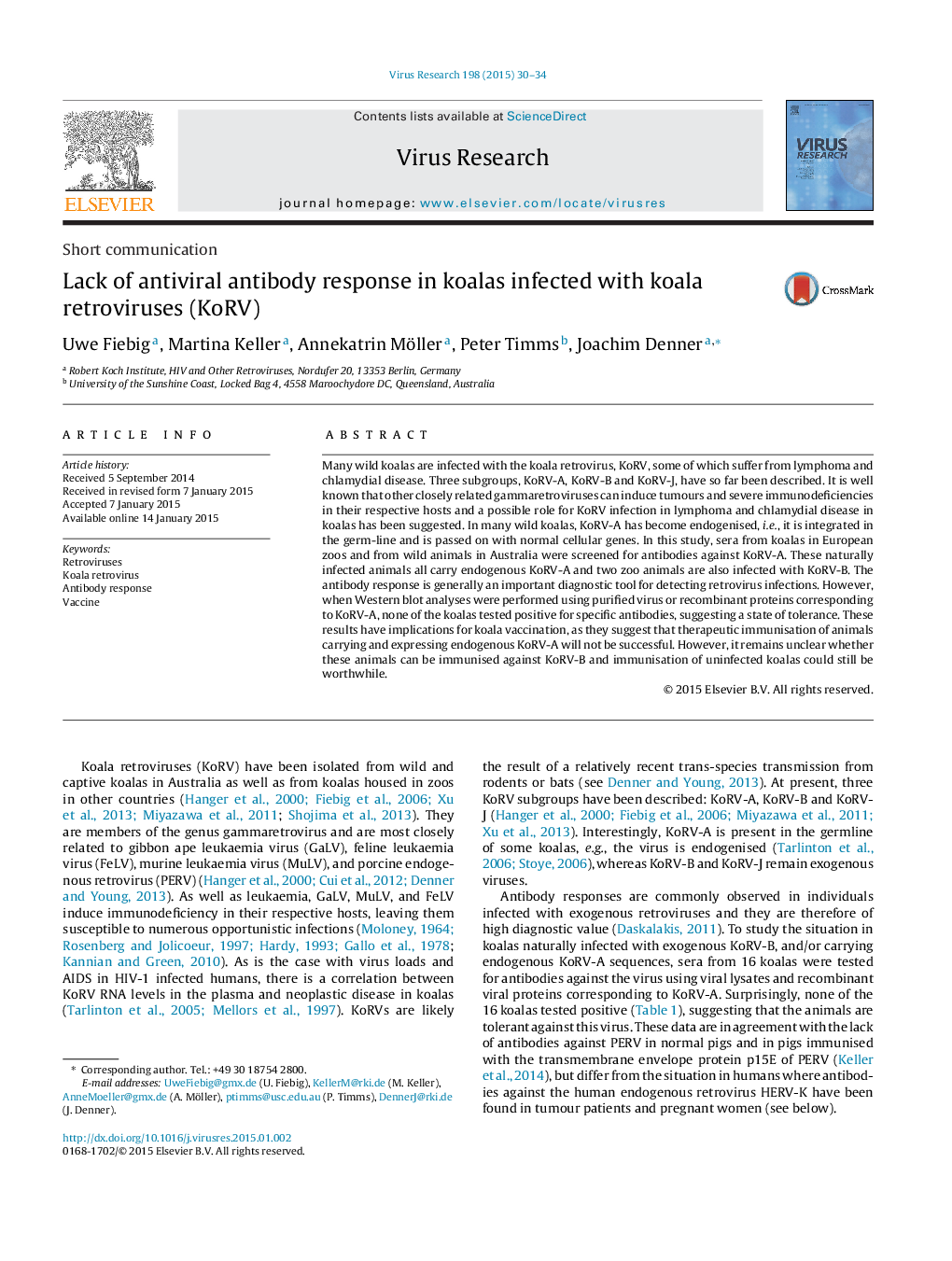| Article ID | Journal | Published Year | Pages | File Type |
|---|---|---|---|---|
| 3428324 | Virus Research | 2015 | 5 Pages |
•Koalas from zoos as well as from Australia had no antibodies against the KoRV-A.•The tolerance against KoRV-A has implications for future vaccination studies.•For comparison, pigs also do not produce antibodies against their PERVs.
Many wild koalas are infected with the koala retrovirus, KoRV, some of which suffer from lymphoma and chlamydial disease. Three subgroups, KoRV-A, KoRV-B and KoRV-J, have so far been described. It is well known that other closely related gammaretroviruses can induce tumours and severe immunodeficiencies in their respective hosts and a possible role for KoRV infection in lymphoma and chlamydial disease in koalas has been suggested. In many wild koalas, KoRV-A has become endogenised, i.e., it is integrated in the germ-line and is passed on with normal cellular genes. In this study, sera from koalas in European zoos and from wild animals in Australia were screened for antibodies against KoRV-A. These naturally infected animals all carry endogenous KoRV-A and two zoo animals are also infected with KoRV-B. The antibody response is generally an important diagnostic tool for detecting retrovirus infections. However, when Western blot analyses were performed using purified virus or recombinant proteins corresponding to KoRV-A, none of the koalas tested positive for specific antibodies, suggesting a state of tolerance. These results have implications for koala vaccination, as they suggest that therapeutic immunisation of animals carrying and expressing endogenous KoRV-A will not be successful. However, it remains unclear whether these animals can be immunised against KoRV-B and immunisation of uninfected koalas could still be worthwhile.
